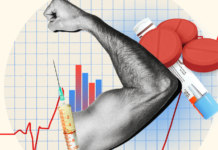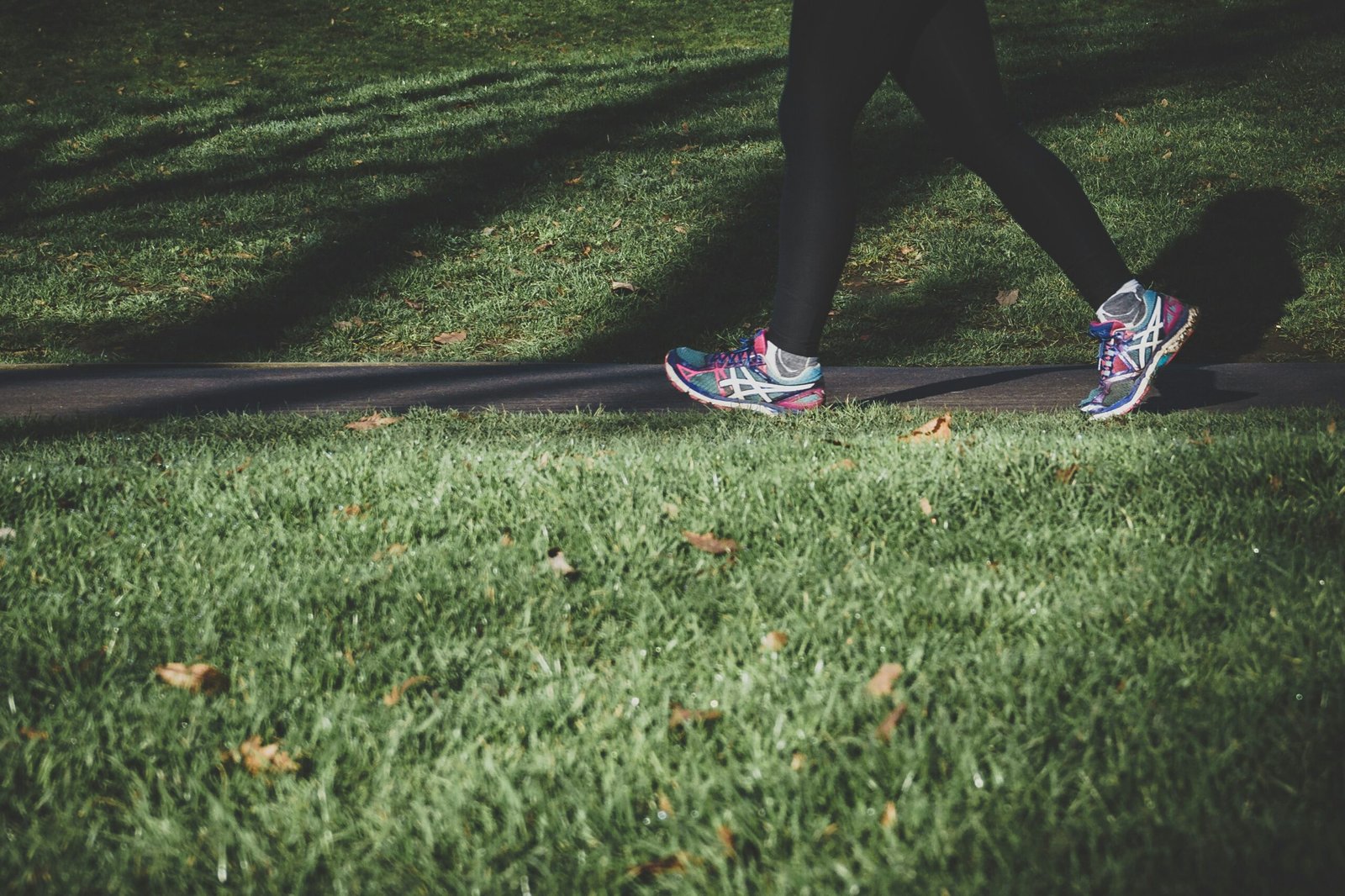TESTOSTERONE IS RESPONSIBLE for so many important functions, from building muscle to getting (and keeping) erections to bone health and red blood cell production. So, maintaining normal levels of the essential hormone—which vary from person to person—is crucial.
There are several natural ways to give your testosterone a boost and keep it from getting too low. Low is generally under 264 nanograms per deciliter (ng/dL), although most doctors are just as concerned about any symptoms that you have, like low libido, fatigue, irritability, and erectile dysfunction. They typically factor in your labs and your symptoms before prescribing testosterone replacement therapy.
“The goal is general well-being,” says Ahmed El-Zawahry, M.D., a urologist at the University of Toledo Medical Center. “Testosterone treatment is only necessary when a person has symptoms associated with low testosterone.”
Not everyone who has low testosterone experiences symptoms, he adds. The impact varies depending on the individual, their age, size, and how physically fit they are.
Testosterone, which is produced in the testicles, naturally declines as you age, Dr. El-Zawahry says. After your 30s or 40s, you can expect it to drop about 1 percent to 3 percent a year.
Aging is something you can’t control, of course. But, you can control other factors that contribute to low T. There are a few ways to naturally boost your testosterone, or at least help keep your levels from getting too low.
How Can You Boost Testosterone Naturally?
With testosterone, more isn’t always better—and, it’s not in any way linked to manliness. It’s rare for men to have naturally high testosterone, which can cause low sperm counts, high blood pressure, and mood swings.
But, you don’t want it to get too low, either, or you’ll experience a range of symptoms, like always feeling tired or erectile dysfunction. Here are some natural ways to keep your testosterone in balance.
Maintain a Healthy Weight
The weight-low testosterone connection is an “interesting paradox,” says Anthony Hackney, Ph.D., D.Sc., a professor of exercise physiology and nutrition at the University of North Carolina. Low testosterone is linked to being overweight or obese, as well as being underweight.
Hormones in fat cells can inhibit testosterone production by increasing estrogen, which affects the pituitary glands that signal to the testicles how much testosterone to make. On the other hand, “When you’re going negative in your caloric balance, your testosterone is going to drop,” Hackney says.
Maintaining a healthy weight will keep your T levels in their normal range, whatever normal means for you (the “normal” range is a gigantic 264 to 916 mg/dL.
Eat a Balanced Diet
“Having an unhealthy diet with empty calories causes increased body fat,” Dr. El-Zawahry says. “This will cause a vicious cycle of lower testosterone: more fat, less exercise, and then, more fat.”
Eating a balanced diet with plenty of fruits, vegetables, whole grains, and lean protein will keep you healthy overall, including keeping your T levels normal.
There aren’t necessarily any magic foods that will raise your levels, however. Dr. El-Zawahry says omega-3 fatty acids, found in fatty fish like salmon, have been shown to help with testosterone synthesis. There’s also some evidence certain nutrients in eggs, garlic, broccoli, and Brussels sprouts can have a positive influence on testosterone, but it’s not like they’re magic bullets for low T.
Limiting high-sugar and high-fat foods will help keep testosterone in a healthy range, too. These foods have been linked to lower T levels, says Jamin Brahmbhatt, M.D., a urologist at Orlando Health.
Get Plenty of Sleep
Everyone needs at least seven hours of sleep a night, but most people don’t get that much. That can affect many aspects of your health, including testosterone production.
T levels increase while you sleep, peaking around 3 a.m. to 8 a.m., and are tied to your circadian rhythms. So when you stay up too late or don’t stick to a sleep schedule, it disrupts your circadian rhythms and testosterone production.
A small study of healthy young men showed that their T levels dropped by 10 to 15 percent when they only slept for five hours a night.
“Good quality sleep on a regular basis is just really critical,” Hackney says. Strive to get seven or more hours a night by creating a routine of going to bed and getting up at the same times every day.
Increase Resistance Training
Regular exercise is beneficial for your health, and certain workouts can temporarily raise testosterone. Exercise is also a key component in weight management, which can also keep your T balanced.
Research shows that strength exercises can increase testosterone levels. But the boost usually only lasts about an hour before your T levels return to normal, Hackney says.
Lifting heavier weights and performing lots of sets can have a bigger impact on your levels than other protocols, he adds. When you start your resistance training session with large muscle groups, like glutes or chest, and then move to small muscle groups, like triceps and shoulders, you could see the largest testosterone response, according to some research.
While extreme endurance-based exercises have been shown to possibly reduce testosterone, that doesn’t mean you should cut out the cardio. Dr. Brahmbhatt says any exercise is good for your body, which is good for your testosterone.
Cut Back on Drinking (and Other Substance Use)
Generally avoiding smoking, taking drugs, and drinking alcohol will improve your testosterone.
Smokers tend to have lower testosterone levels. Heavy alcohol consumption has been shown to reduce testosterone levels in the blood. It can impair testicular function and interfere with hormone production.
Overuse of other substances, like opioids, cannabis, and amphetamines, also have been shown to interfere with testosterone production and testicular function.
“My advice is to avoid these or not to overdo them as much as possible,” Dr. El-Zawahry says. Usually, when you cut out or cut back on these substances, your T levels will return to normal.
Can Supplements Boost Your Testosterone?
There are tons of supplements out there promising to give your testosterone a boost, but Dr. El-Zawahry says most lack scientific evidence showing that they actually work.
There’s some evidence that zinc and vitamin D3 may help raise T levels minimally, Dr. Brahmbhatt says. But, you usually don’t need a supplement unless you have a vitamin deficiency. (It’s always best to talk to your doctor before taking one, especially when you have existing medical conditions or take medications).
There is also some research on the herb Tongkat Ali and its potential to boost testosterone, although experts say the amount it might raise it won’t change how you feel or how you perform.
Anabolic steroids, which are synthetic testosterone, are sometimes misused to enhance muscle-building or athletic performance. They increase testosterone but come with many side effects, like male breast growth, heart problems, high blood pressure, and testicle shrinking.
What to Do When You Think Your Testosterone Is Low
If you’re noticing symptoms like low sex drive, fatigue, depression, erectile dysfunction, and irritability, and suspect you might have low T, talk to your doctor. They’ll discuss with you reasons for these symptoms and will order blood tests to see if your testosterone is low.
You may be prescribed testosterone replacement therapy, and doctors will recheck your levels and talk to you about symptoms regularly.
“Testosterone therapy is not a fountain of male youth,” Dr. Brahmbhatt says. “There are risks, and therefore it’s important to have this therapy initiated by the right people at the right time at the right doses.”


























